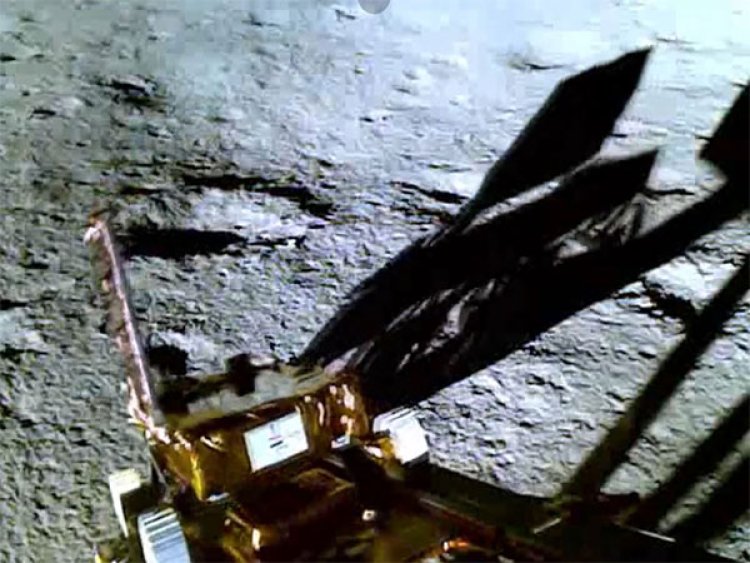The Chandrayaan-3 mission's success shows the resilience of Indian scientists and the determination of its people to shake the dust off their problems and rise again, writes freelance journalist Hannah Abraham for The Guardian newspaper.
Abraham wrote that millions of children across the country watched live as their own scientists - people who grew up in the same land as them - did what no other country's scientists had managed to do before.
The missions' success means that Indians everywhere are a giant leap closer to being, as the great Indian writer Rabindranath Tagore said, "where the mind is without fear and the head is held high". And that in itself could be the most valuable and lasting thing to come out of this remarkable scientific feat.
Millions of Indians Indians all over the world celebrated the successful landing of the Chandrayaan-3 lunar exploration mission.
The country even broke YouTube's record for livestreams, with more than eight million people staying glued to their screens last Wednesday, as the spacecraft edged close to the lunar surface. The excitement is understandable, especially considering the fact that just four years ago, the preceding Chandrayaan lander crashed into the moon after a software glitch.
The author also questioned the BBC for an old viral video where a BBC presenter at the time questioned whether India, a country that "lacks a lot of infrastructure" and where "700 million people don't have access to a toilet", should be spending money on a space programme.
As per Abraham, wheeling out the poverty trope was a poor choice, especially considering that the BBC is based in a country that shoulders much of the blame for the poverty faced by many Indians today. (It is estimated that Britain drained almost USD 45tn (Euro 36tn) from India during the colonial period between 1765 and 1938.)
"The fact that India is now the first country to land a module near the lunar south pole proves that its space programme was more than a vanity project. For the first time, the world will have images from the moon's south pole, which will have tremendous impacts on lunar research," she writes for The Guardian.
The Chandrayaan-3 mission's success is a testament to the dedication and perseverance of the chairman of the Indian Space Research Organisation, Sreedhara Somanath, and the hundreds of others who worked on the project. Professor Jayant Narlikar, celebrated physicist and co-author of the Hoyle-Narlikar theory, remembers the early days. "I was with [the physicist] Vikram Sarabhai when the space programme had just launched," he tells me. "People called it a white elephant but Vikram was quietly confident."
India's success in space was surprisingly cost-effective. In fact, the Chandrayaan-3 mission was successfully executed at a cost of USD 75m (Euro 60m) - roughly the same budget as the recent Bollywood film Adipurush. The landing now means potentially more resources for large parts of India's economy: investment in space programmes, international research collaboration and innovation, and in encouragement for the country's scientific community, as per The Guardian article.
Indian billionaire Anand Mahindra in response to the viral BBC video said the most insidious impact of colonialism was to "convince its victims of their inferiority". And yet, across India last week, people in streets, offices and schools were ecstatic. "All of us stopped our work midway and went outside to celebrate," recalls Kashika, a marketing executive in New Delhi. "Everyone was chanting, 'Vande Mataram [I bow to thee, mother] and 'Bharat mata ki jai' [victory to the motherland]. I've never been able to celebrate something like this in my lifetime."
Abraham writes that as an Indian living in the UK, "Mahindra's statement hit me in the very pit of my stomach. Since I've been here, I've had to smile and nod at a plethora of uninformed comments. People are constantly surprised by the fact that I don't speak like Apu from The Simpsons. Just recently, a local councillor told me he "never would have guessed" I was Indian because my diction was impressive. It felt as if he wanted me to be proud of myself, but all that said to me was that if I spoke in a more "typically Indian" way, I'd have been considered of lesser value.
















































